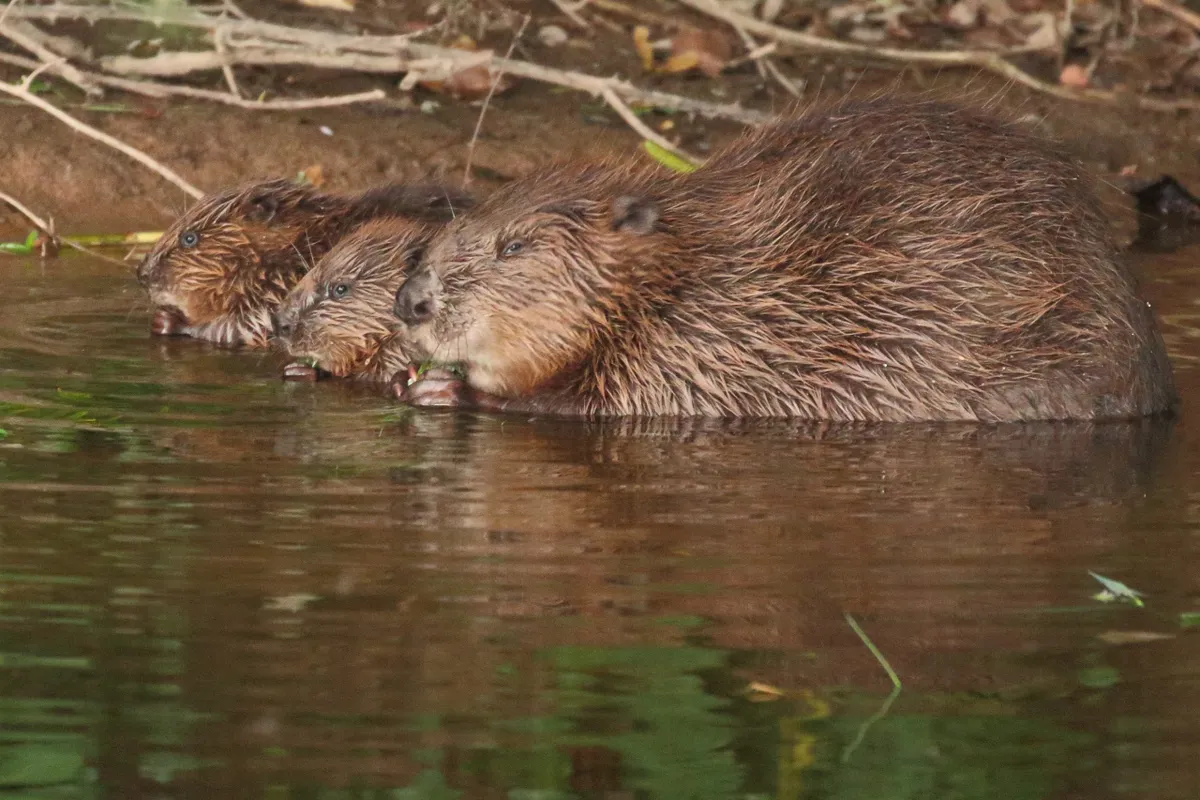When England’s first population of wild breeding beavers for 400 years made their home on the River Otter in East Devon, many of the county’s human residents were thrilled to see the return of this enigmatic animal. But for some, the beavers’ presence in the environment was problematic, with locals at first threatening to remove them.
As such, their future here since their arrival in 2008 has been one of uncertainty.
But as of today, thanks to a decision announced by Defra, the beavers have been given a permanent right to remain in their East Devon river home, securing their future in England.
This is a landmark decision, as it signals the first legally sanctioned reintroduction of an extinct native mammal to England.

The Government made its decision for the mammals to permanently remain in the country thanks to evidence in a report published earlier this year from the River Otter Beaver Trial (ROBT).
The ROBT — run by Devon Wildlife Trust and partners — was a five-year trial analysing the beavers and their impacts. It concluded that the animals’ presence was beneficial to the people and wildlife living along East Devon’s River Otter.
It found that fish, insects, birds, and mammals such as water voles benefitted the most from the beavers due to the ways in which beavers are able to enhance wetland habitats.
But it isn’t only animal life that reap rewards from having beavers in the landscape, humans also stand to benefit. In building dams, beavers help to reduce the risk of flooding to some human settlements threatened by river flooding.
The dams can also help improve water quality in the rivers they inhabit by acting as natural filters, trapping soil and other pollutants from surrounding farmland.

Although the return of these animals to Britain’s landscape is overwhelmingly positive, with benefits including carbon storage, minimising flood risk, improving water quality, increasing biodiversity, and bringing socio-economic benefits through wildlife tourism, the trial did highlight some issues arising from the beavers’ dam-building activities.
Some conflicts arose from landowners who did not wish for their farming practices to be affected by beavers.
To address this conflict of interest, partners from ROBT are pressing the Government to assist these landowners by way of funding.
“The ROBT partnership has recommended an approach to management to help avoid the negative impacts of these creatures whilst allowing benefits to be maximised,” said Professor Richard Brazier, who led the research team at the University of Exeter.
“Alongside all members of the ROBT we are calling for the government to support this. The strategy includes ensuring that landowners are supported financially to make more space for water, so that land-based businesses can co-exist alongside beavers and their wetlands.”
Such action will further support and secure the future of beavers in the UK for the long-term.
That these enigmatic animals have been given permanent legal right to remain in Devon in 2020 is a major victory for their comeback in England.
But their story in this country shouldn’t just end here, as Craig Bennett, Chief Executive of The Wildlife Trust, explains: “Now we need to see the Government produce a national beaver strategy which will provide a roadmap for their future across the rest of the country.
“Bringing beavers back where they belong is part of a bigger story. The Wildlife Trusts aim to put at least 30% of our land and sea aside for nature’s recovery by 2030 – creating more space for nature and protecting and connecting those areas to bring our wildlife back.”